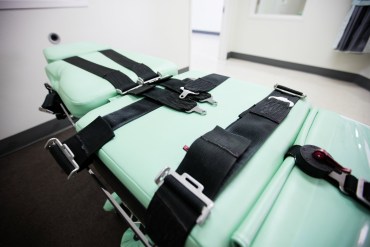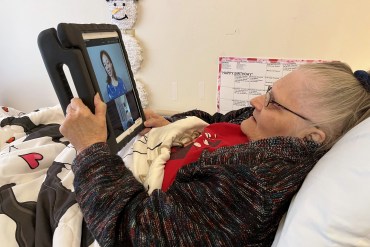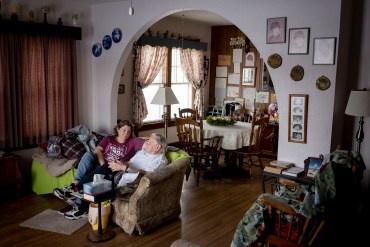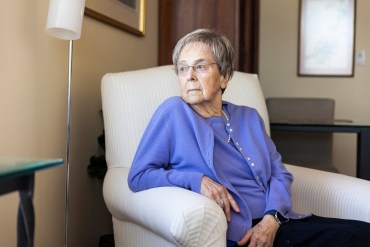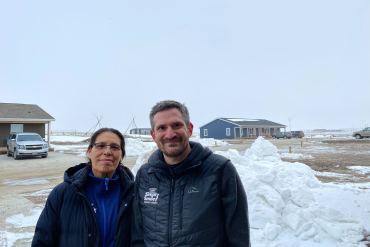States Try to Obscure Execution Details as Drugmakers Hinder Lethal Injection
Pharmaceutical companies have put the brakes on many states’ ability to execute prisoners using lethal injections. Lacking alternatives, states are trying to keep the public from learning details about how they carry out executions.
$50 Billion in Opioid Settlement Cash Is on the Way. We’re Tracking How It’s Spent.
Spending the money effectively and equitably is a tall order for state and local governments, and a lack of transparency in the process is already leading to fears of misuse.
Congressman Seeks to Plug ‘Shocking Loophole’ Exposed by KHN Investigation
A federal lawmaker has introduced a House bill that would close one of a laundry list of oversight gaps revealed in a recent KHN investigation of the system regulators use to ban fraudsters from billing government health programs, including Medicare and Medicaid.
When College Athletes Kill Themselves, Healing the Team Becomes the Next Goal
Suicide is the second-leading cause of death among college students. Contrary to conventional wisdom, athletes aren’t immune from the risk factors. Players at Stanford University, the University of Wisconsin, and other colleges are learning how to protect their mental health and ask for help after their teammates killed themselves.
Journalists Delve Into Insulin Costs and Prior Authorization Policy
KHN and California Healthline staff made the rounds on national and local media this week to discuss their stories. Here’s a collection of their appearances.
Legal Questions, Inquiries Intensify Around Noble Health’s Rural Missouri Hospital Closures
A year after private equity-backed Noble Health shuttered two rural Missouri hospitals, a slew of lawsuits and state and federal investigations grind forward. Missouri Attorney General Andrew Bailey recently confirmed an “ongoing” investigation as former employees continue to go unpaid and cope with unpaid medical claims.
Mental Health Care by Video Fills Gaps in Rural Nursing Homes
In-person mental health care is hard to arrange in rural nursing homes, so video chats with faraway professionals are filling the gap.
Temp Nurses Cost Hospitals Big During Pandemic. Lawmakers Are Now Mulling Limits.
Missouri is considering making it a felony to jack up temporary health care staffing prices during a statewide or national emergency. It’s one of at least 14 states looking to reel in travel nurse costs, after many hospitals struggled to pay for needed staffers earlier in the covid pandemic.
Pandemic Stress, Gangs, and Utter Fear Fueled a Rise in Teen Shootings
With their brains still developing and poor impulse control, teens who carry firearms might never plan to use them. But some do.
After People on Medicaid Die, Some States Aggressively Seek Repayment From Their Estates
States take drastically different approaches to recovering Medicaid money from deceased participants’ estates. Demands for repayment of Medicaid spending can drain the assets a person leaves behind, depending on where they lived.
Ante vacío federal, estados promueven leyes duras contra el uso de sustancias tóxicas en cosméticos
Las hispanas y asiáticas han informado que usan más cosméticos en general que las mujeres negras y blancas no hispanas.
States Seek Crackdown on Toxic Ingredients in Cosmetics to Close Gaps in Federal Oversight
Washington state regulators found formaldehyde, lead, and arsenic in lipstick, powder foundations, skin lotions, and hair products marketed to and popular with women of color. Now legislators there are seeking to ban the products and, like at least a dozen other states, make up for lax federal rules.
A Bitter Battle Over the ‘Orphan Drug’ Program Leaves Patients’ Pocketbooks at Risk
Patients who depend upon special drugs to treat rare diseases are caught in the crossfire as drugmakers and the FDA battle over regulations that reward companies for developing treatments for relatively small pools of patients.
Armed With Hashtags, These Activists Made Insulin Prices a Presidential Talking Point
Twitter has been a hotbed for the burgeoning insulin access movement and activism surrounding other medical conditions. For people with diabetes, the platform has helped propel concern about insulin prices into policy. Can it continue to win with hashtags?
It Takes a Village: Foster Program Is a New Model of Care for Indigenous Children
A foster care program on the Cheyenne River Reservation in South Dakota is attracting attention from officials elsewhere as they search for ways to reduce trauma inflicted on Indigenous families, who’ve faced generations of high rates of family separation.
When Medicare stops paying for a pricey drug that prolongs life, an Ohio man considers giving up treatment to spare his family enormous debt.
Why Two States Remain Holdouts on Distracted Driving Laws
Missouri and Montana are the only states without distracted driving laws for all drivers. With traffic fatalities rising significantly nationwide, some Missouri lawmakers and advocates for roadway safety are eyeing bills in the new legislative session that would crack down on texting while driving in the Show Me State.
When Gun Violence Ends Young Lives, These Men Prepare the Graves
Just outside St. Louis, a cemetery for children sits on a hill. A wooden, weather-worn sign welcomes mourners to “Baby Land.” The gravediggers who made the special spot work quietly in the shadows.
A Baby Spent 36 Days in an In-Network NICU. Why Did the Hospital Next Door Send a Bill?
A baby spent more than a month in a Chicago NICU. A big bill revealed she was treated by out-of-network doctors from the children’s hospital next door. Her parents were charged despite a state law protecting patients from such out-of-network billing — and sent to collections when they didn’t pay up.
Unmet Needs: Critics Cite Failures in Health Care for Vulnerable Foster Children
More states are moving to specialized managed-care contracts solely to handle medical and behavioral services for foster kids. But child advocates, foster parents, and even state officials say these and other care arrangements are shortchanging foster kids’ health needs.



